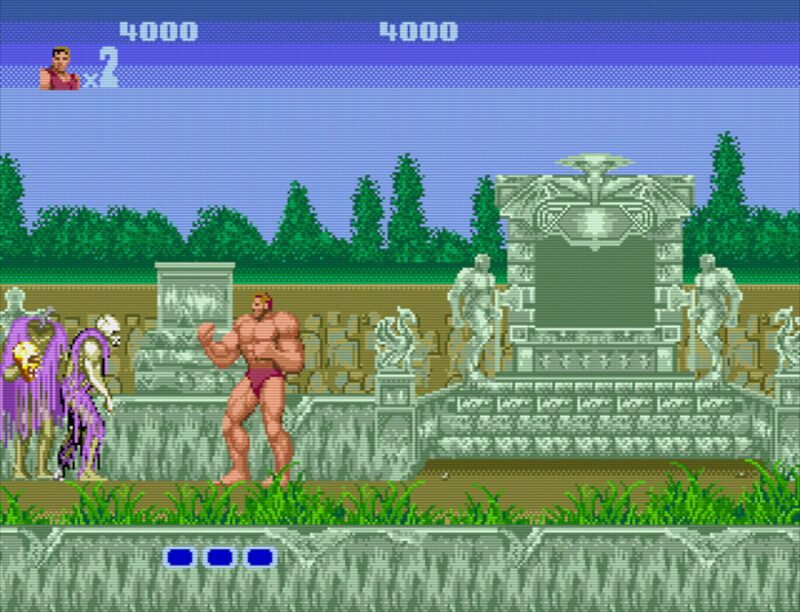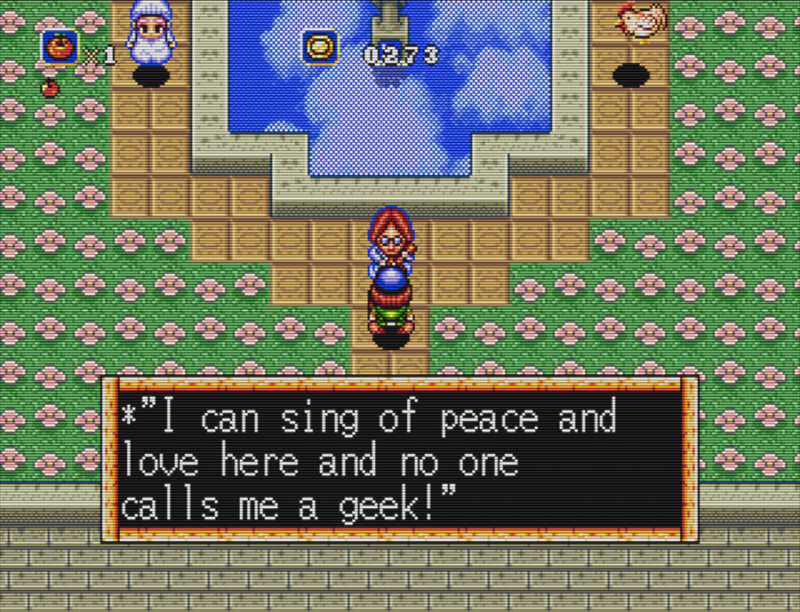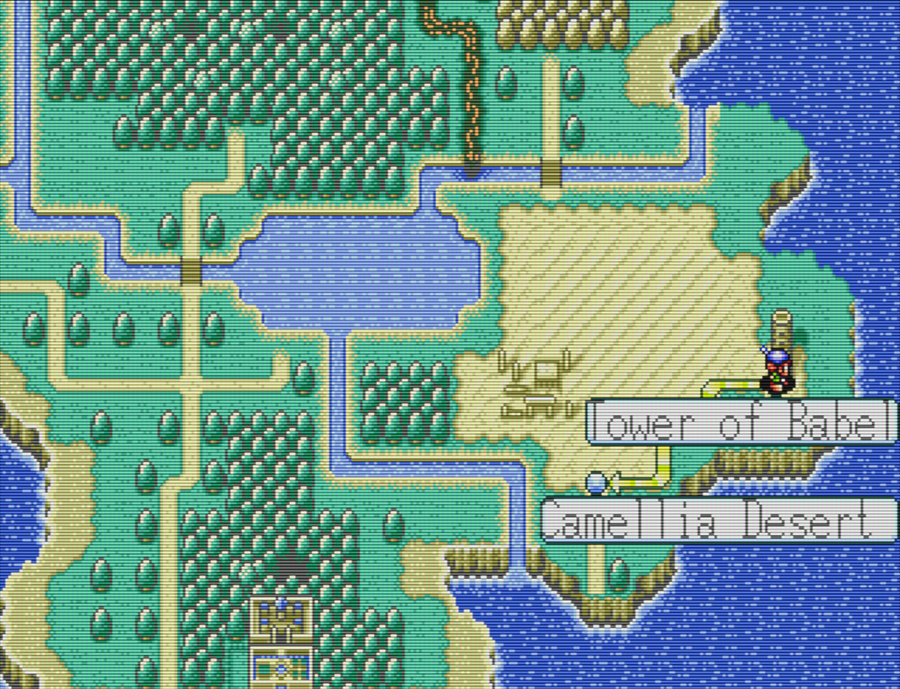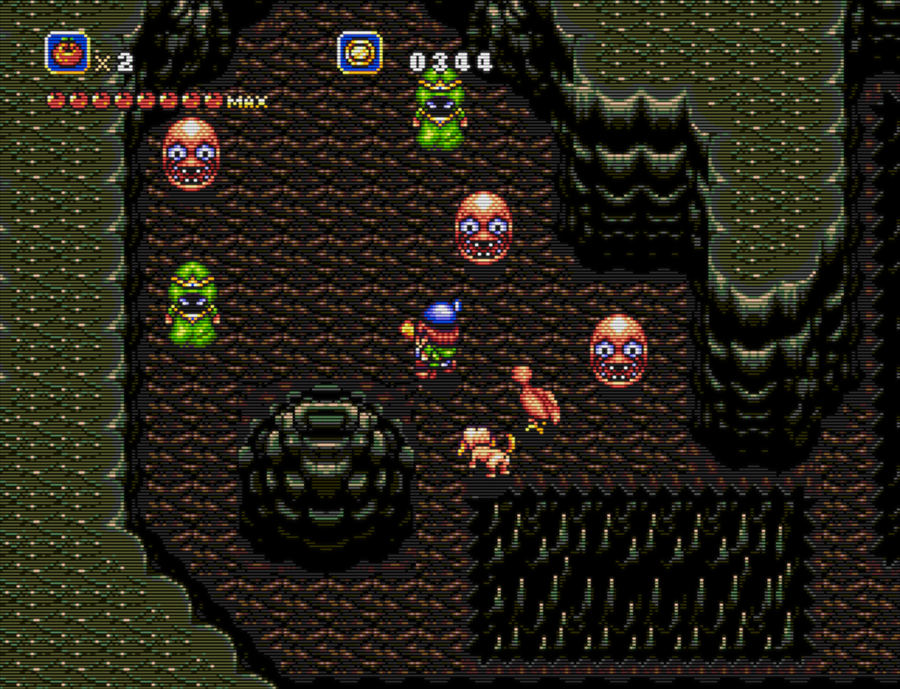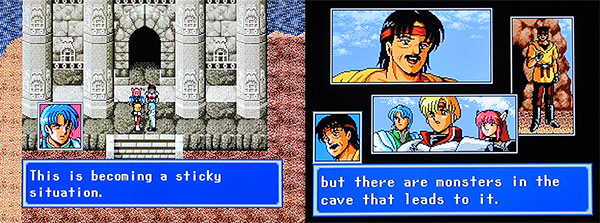Altered Beast on Genesis
On a quick nostalgia kick I went back and replayed this, the first Sega Genesis game I ever played. I think this was the pack-in game for the Genesis and it seems an odd choice. At the time it was technologically impressive but the game itself is not terribly exciting. It’s a side-scrolling fighting game in which the main challenge is figuring out the best attacks (kick or punch, that’s it) against the various enemies. The game really comes down to rote memorization.
The most exciting part is collecting the metamorphosis powerups that transform your character into a werewolf, dragon, werebear, or tigerman. Furries, rejoice! Once you transform you’ll become fairly invulnerable and you soon face a stage boss. Most of these bosses can be beaten with attacks that feel like cheap exploits. For example, move in close and spam the electric-shock button and the eyeball thing dies is seconds.
As flawed as the game is, I still enjoy playing it if only to experience the joy of kicking things while wearing jockey shorts.

